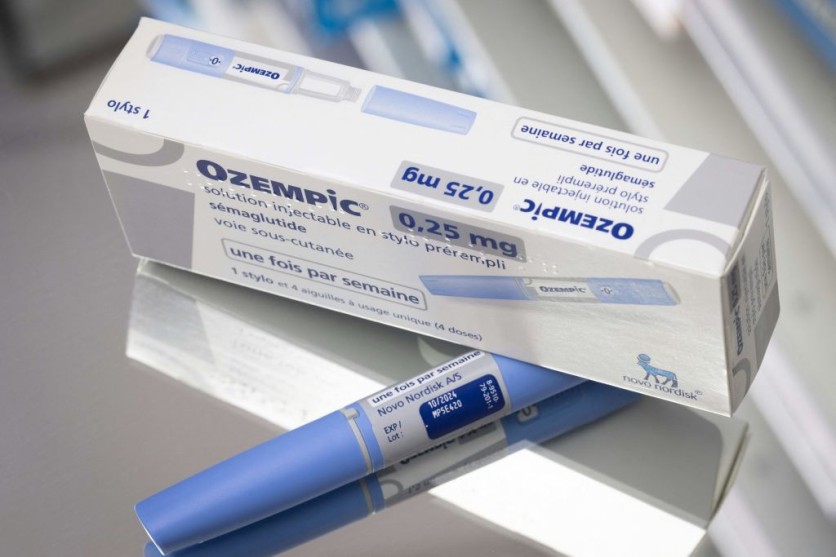Hims & Hers Health, an online pharmacy, now sells generic GLP-1 weight loss medications that mimic Ozempic and Wegovy semaglutide, raising safety concerns.
Compounding pharmacies provide generic versions for $199 a month, much lower than branded medications, which can cost over $1,000 without insurance. During shortages like the present GLP-1 medication shortage, compounding pharmacies can make generic equivalents of these drugs for weight loss and diabetes, according to The Verge.
However, it is important to note that these products are not FDA-approved or studied. Moreover, the FDA stated that it had received adverse event reports from patients who used compounded semaglutide. It advised the public to refrain from them if an approved medication is available.
Hims & Hers said it took a year to find a source but did not name the partner. The firm says clinical specialists say compounded GLP-1s are safe and effective if done properly.
In December 2023, Hims & Hers launched their $79-per-month weight reduction program. Program revenue is expected to exceed $100 million by 2025. Subscriptions account for over 90% of the company's income. Studies show that patients recover the weight they lose once they stop taking semaglutide, necessitating continuous use of GLP-1 weight-loss medicines.
In Q1 2024, Hims & Hers attracted a record 172,000 subscribers. The brand has been advertised on TV during NBA and NFL games, such as "Keeping Up with the Kardashians" and "The Bachelorette."
Another online pharmacy, Ro, started with erectile dysfunction treatments and prescribed compounded weight-reduction medicines. On NYC subways, Ro advertised its weight-loss services.
Authorities Shut Down Hundreds of Websites Selling Fake GLP-1 Drugs
The report on Hims & Hers' sale of compounded GLP-1 weight loss medications follows a massive effort to fight the sale of counterfeit drugs online. Cybersecurity firm BrandShield, per a TechTimes report, shut down over 250 websites peddling fake weight-loss and diabetes drugs last month.
Most of these sites sold bogus GLP-1-class drugs, including Novo Nordisk's Ozempic and Wegovy, as well as Eli Lilly's Mounjaro and Zepbound. These weight-loss medicines, originally designed for type 2 diabetes, are in high demand, making counterfeiters rich.
BrandShield CEO Yoav Keren said the company took down 90% of 279 counterfeit GLP-1 medication sites. According to reports, 95% of internet pharmacies are illegal. BrandShield took down over 15% of the 1,655 websites it detected peddling fraudulent pharmaceuticals last year.
BrandShield works with the Pharmaceutical Security Institute (PSI) to gather evidence to help service providers remove unlawful sites. The company investigates and prosecutes counterfeit drug networks in collaboration with law enforcement agencies.
Last year, BrandShield targeted roughly 4,000 bogus medicine listings on social media to protect customers from online pharmaceutical fraud.

FDA: Fake Drugs Can Be Dangerous
Meanwhile, the US FDA warns the public that fake medications can be harmful as they may contain faulty ingredients, doses, or hazardous chemicals.
The FDA noted that the US drug supply is among the safest in the world due to federal and state "closed" drug distribution rules as the agency vigilantly fights counterfeit medications.
However, the FDA also underscored that counterfeit fentanyl-laced medications have caused more overdose deaths. To protect the US medication supply, the FDA works with other government agencies and the private sector to investigate counterfeit medicine reports.
Moreover, the FDA advises medical professionals and patients to be watchful about fake drugs. They should check if the medicine or the package looks unusual, has notable side effects, and was purchased online.
The FDA recommends consumers, healthcare providers, and supply chain stakeholders buy safe, effective, FDA-approved medicines from state-licensed pharmacies. The US FDA suggests visiting BeSafeRx to learn more about online pharmacy risks.
Related Article : CDC Warns of Possible COVID-19 Resurgence in 12 States, Including DC

ⓒ 2025 TECHTIMES.com All rights reserved. Do not reproduce without permission.




